Building a roadmap for integrated ocean carbon research
International experts, researchers and EU Commission policymakers gathered this week, 3 to 5 May, for the UNESCO Integrated Ocean Carbon Research (IOC-R) workshop in Brussels, Belgium. The aim is to drive forward integrated ocean carbon research that underpins effective decision-making and climate action.
The ocean and climate nexus
With the ocean playing a significant role in our climate and acting as a natural carbon sink, understanding the underlying processes and how they are impacted by carbon dioxide (CO2) emissions is vital. “The ocean is taking up roughly 25% of the CO2 emissions from human beings, and it is also taking up more than 90% of the extra heat due to climate change,” explains Dr Kirsten Isensee, Programme Specialist – Ocean Carbon Sources and Sinks with the Intergovernmental Oceanographic Commission of UNESCO (IOC UNESCO), and co-organiser of the IOC-R workshop.
Ocean carbon research isn’t just crucial for unpacking the ocean’s role in the carbon cycle and regulating our climate, or for understanding how climate change and greenhouse gas emissions impact the ocean. “As we attempt to move towards ‘net zero carbon emissions’, we must be able to determine if our actions to reduce CO2 are having any impact globally. To do this, we have to tease out how much change is attributable to our actions versus how much is being taken up by the ocean,” says Dr Maria Hood, head of the EU4OceanObs action on the G7 Future of the Seas and Oceans Initiative. “At present, the uncertainty in the ocean carbon sink is so large and variable that it will be difficult to know if any of our actions are actually having an impact.”
Taking an integrated approach
The IOC Expert Working Group Integrated Ocean Carbon Research (IOC-R) is where researchers working on the different facets of ocean carbon can come together. “Quite often, we work in silos. We work in the coastal ocean, or we work in the open ocean, we work in the water column, we work in the sediment, we work in the atmosphere, the surface ocean. But all that, of course, interacts,” says Isensee. For this reason, “ocean carbon research must be approached holistically,” Dr John Bell, the European Commission’s ‘Healthy Planet” Director, explained at the opening of the workshop. “The research must have direction – how can we use the knowledge to design effective solutions? Who is the knowledge for? To what end, in addressing the needs of our planet and our society?”
At the workshop, the participants discussed the future of integrated ocean carbon research. Based on a series of workshops that started in 2018, the IOC-R published an integrated strategy for ocean carbon research in 2021. This strategy brought “together all the pieces of the puzzle to highlight major knowledge gaps and research priorities,” says Hood. “Now, five years after the first census of knowledge gaps, we’re meeting again to review and update the strategy-what have we learnt, what are our new priority areas, what new issues must be addressed.”
Building on the European Union’s commitments
The outcomes of the workshop will build upon existing commitments from the European Union and other nations. “The European Union, through its Horizon 2020 and Horizon Europe programmes, is making major contributions to ocean carbon research,” says Hood. Over 350 projects on the ocean and climate nexus have been funded through the EU Research and Innovation Framework programmes, including those relating to ocean carbon research. Such projects include the Integrated Carbon Observing System – Ocean Theme (ICOS OTC), a European-wide research infrastructure focused on coordinating ocean carbon measurements as part of an integrated strategy (atmosphere, ocean, and land), the Ocean-ICU project, a large multidisciplinary project addressing limitations in our ability to measure and model the ocean carbon sink, and the JPI Oceans Knowledge Hub Ocean Carbon Capacities, which addresses and reduces uncertainties in the understanding of the ocean’s buffering and carbon storage capacities
On the international stage, the workshop will also feed into commitments made under the UN Decade of Ocean Science for Sustainable Development. “Ocean carbon, the ocean and climate nexus, is identified as a challenge [Challenge Five: unlock ocean-based solutions to climate change], so this work will directly contribute to looking where we are in terms of meeting this challenge,” says Isensee.
With the knowledge created from an integrated approach, the European Union will be better placed to develop effective policies that mitigate climate change and ensure healthy ecosystems for a healthy planet and, thus, a healthy people and a sustainable future.
ICO-R Workshop Opening address by John Bell, the European Commission’s ‘Healthy Planet” Director, European Commission DG RTD
Useful links
- Integrated ocean carbon research: a summary of ocean carbon research, and vision of coordinated ocean carbon research and observations for the next decade: unesdoc.unesco.org/ark:/48223/pf0000376708
- News piece: The European Commission hosts the UNESCO Integrated Ocean Carbon Research workshop: research-and-innovation.ec.europa.eu/news/all-research-and-innovation-news/european-commission-hosts-unesco-integrated-ocean-carbon-research-workshop-2023-05-03_en
- Integrated Carbon Observation System – Ocean Theme (ICOS) website : www.icos-cp.eu/observations/ocean
- Horizon Europe Ocean ICU project: https://ocean-icu.eu/
- News piece on Horizon Europe project Ocean-ICU – New project for improved understanding of the ocean carbon cycle to inform climate action www.eu4oceanobs.eu/oceanicu_project_ocean_carbon/
- JPI Oceans Knowledge Hub Ocean Carbon Capacities website jpi-oceans.eu/en/ocean-carbon-capacities
- Ocean Decade Challenges website: oceandecade.org/challenges
- Ocean carbon from space: Current status and priorities for the next decade: research-and-innovation.ec.europa.eu/knowledge-publications-tools-and-data/publications/all-publications/ocean-carbon-space-current-status-and-priorities-next-decade_en





